On December 12, 2024, educators, advocates, community organizations, and business leaders gathered at the Lastinger Center for Learning’s Listening Tour Math Summit in Tampa. The event brought together insights and recommendations from more than a year’s work, including a 10-week tour of Florida that featured over 100 focus groups with 500 participants, regional discussions, as well as 6,300 surveys. The results present actionable solutions to improve math education outcomes for students and teachers across Florida.
“These conversations are vital,” said Phil Poekert, Ph.D., director of the UF Lastinger Center. “It was invaluable to have a space where we could share what’s working, where we can improve, and how we can collectively make real change that gives our students the kinds of experiences with math that they are asking for.”
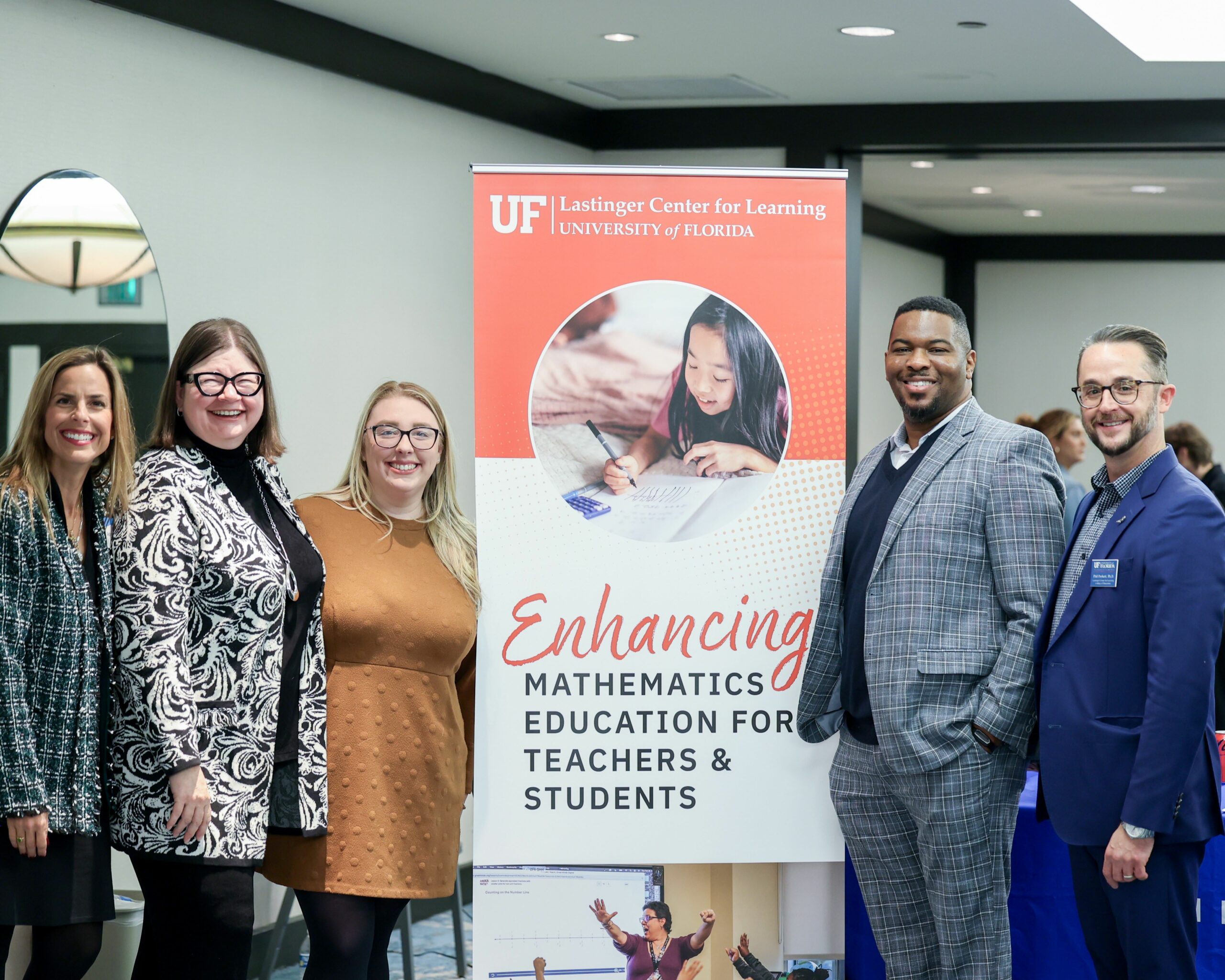
The Lastinger Center, a leader in educational programs, research, and advocacy, unveiled five detailed briefs that synthesized findings from the Fall 2023 Listening Tour. These briefs focus on key topics such as student experiences in mathematics, post-secondary success, and opportunities for math learning beyond the classroom. The Center’s goal is to provide concrete, data-backed recommendations that can shape both classroom practice and statewide policy, fostering an environment of thriving students and high-quality instruction.
One key theme that emerged was the challenge of bridging the gap between knowing math content and effectively teaching it. Many teachers reported needing more specialized professional learning opportunities, particularly in how to communicate complex mathematical concepts to diverse student populations. Another key recommendation called for infrastructure support for mathematics similar to the efforts previously made for literacy education in Florida.
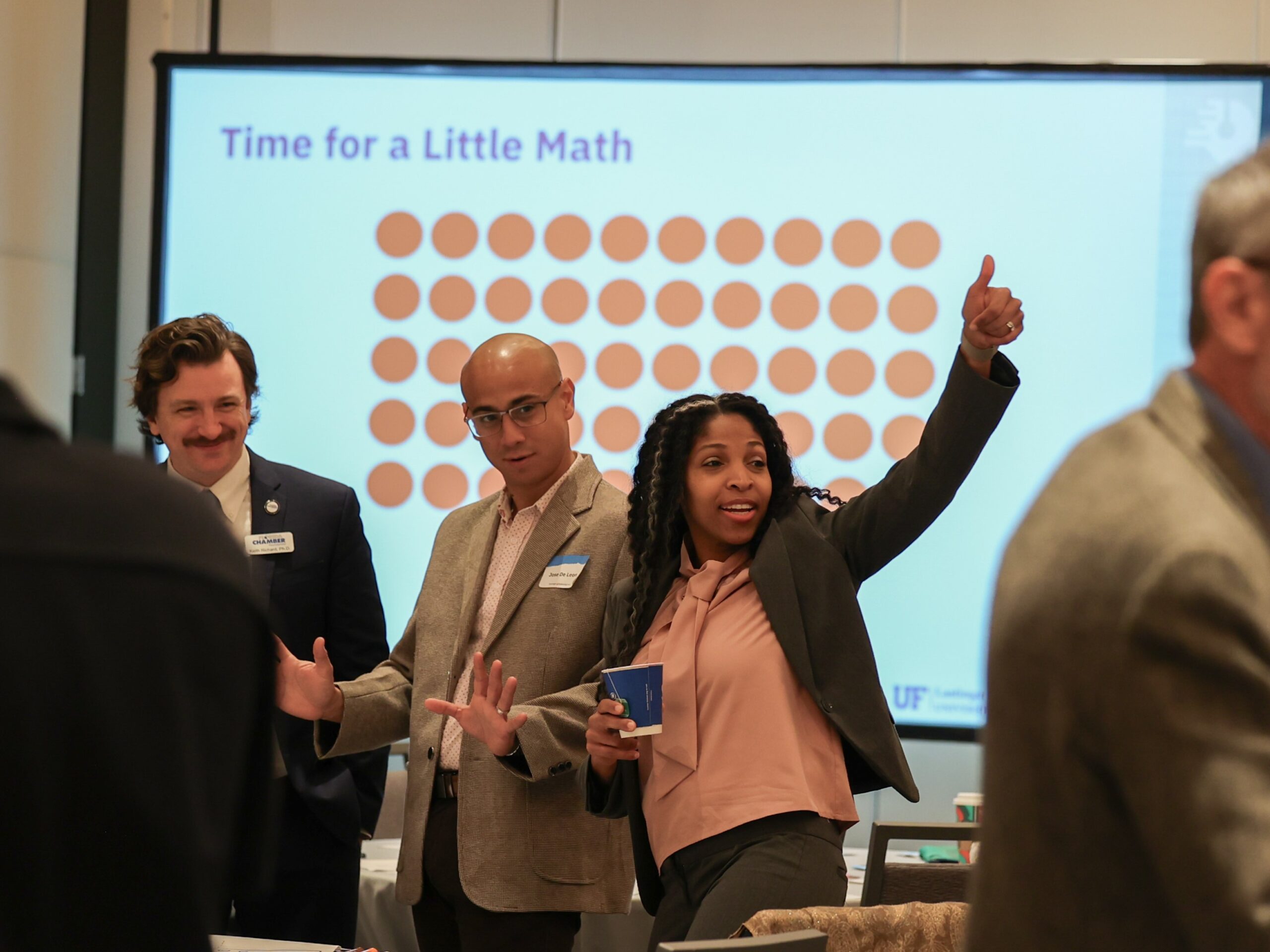
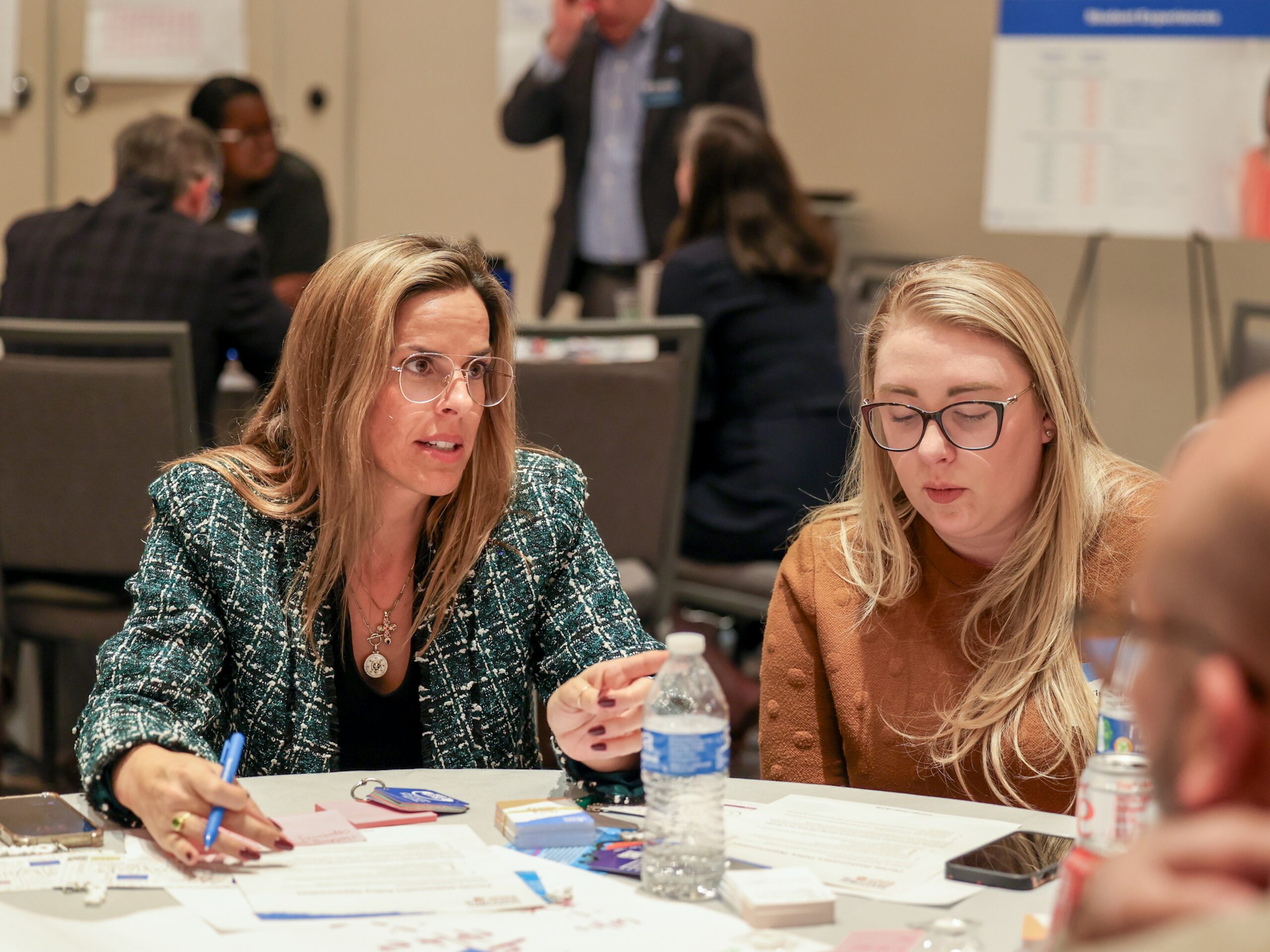
Setting the Stage
Mathematics education is a cornerstone of student success in both academic and professional spheres yet math achievement has been on the decline in recent years. According to the National Assessment of Educational Progress (NAEP), the average math score for 8th graders in Florida fell by eight points between 2019 and 2023, mirroring a broader national trend. In Florida, only 23% of 8th-grade students are proficient in math, a statistic that inspires the Lastinger Center to work toward ensuring all Florida 8th graders perform math at or above grade level by 2030 as the Florida Chamber’s Goal Leader.
Improving math outcomes is critical not only for individual students but for the state’s economic future. Florida, like many states, faces a shortage of skilled workers in STEM fields, and the lack of strong math foundations is a key barrier to entry for many students. Addressing this challenge requires comprehensive solutions that span teacher preparation, curriculum development, and systemic support for both students and educators.
“The recommendations from the Listening Tour align with what the Florida Chamber Foundation has found in our own discussions with members of the business community,” said Keith Richard, Ph.D., vice president of research for the Florida Chamber Foundation. “The opportunities the Lastinger Center shared are a step toward ensuring that Florida can compete globally in the workforce of tomorrow as part of our Florida 2030 Blueprint goals.”
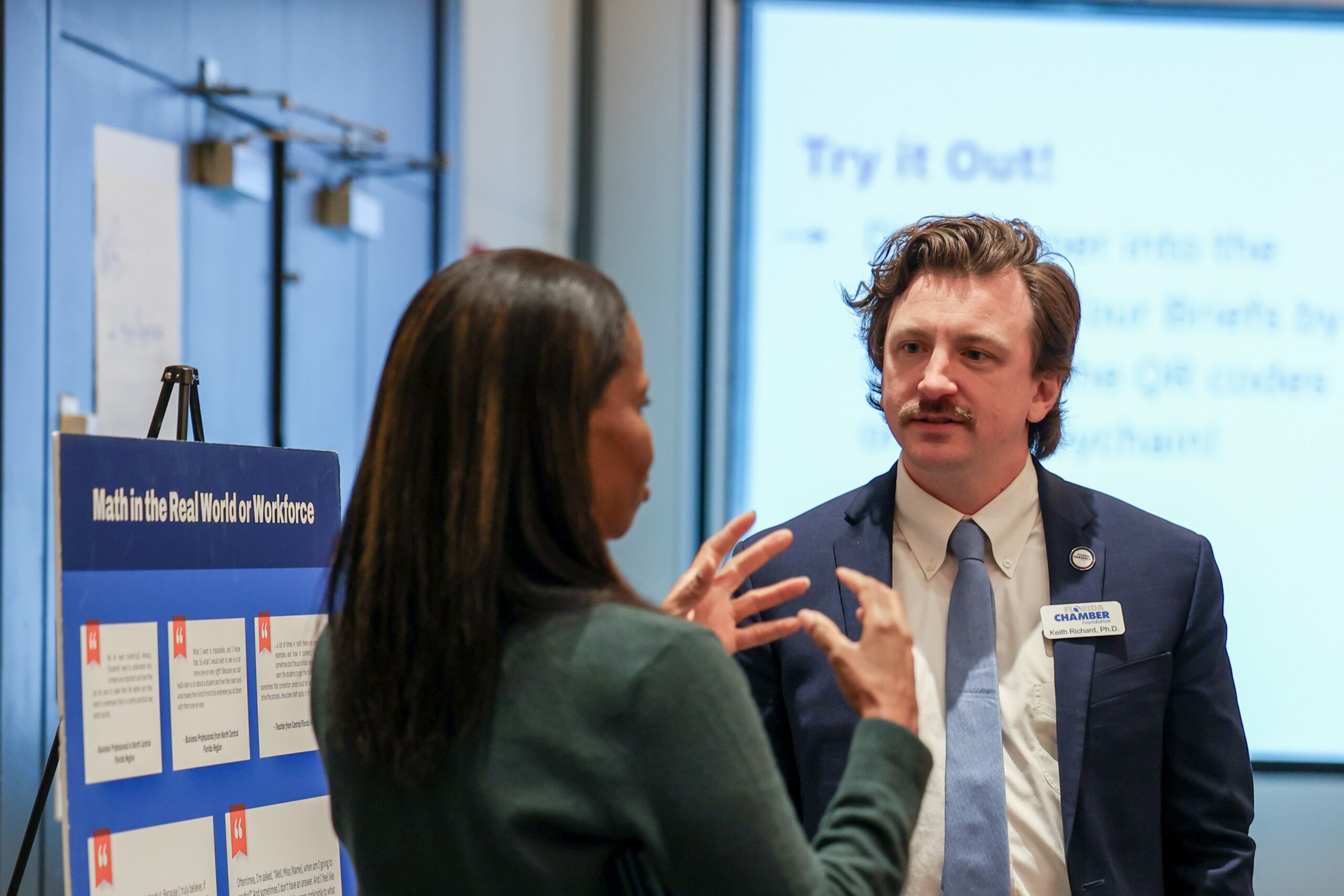
Opportunities for Improving Math Education
One of the primary objectives of the Listening Tour was to gather input on how to address teacher preparation and retention in the state. The Lastinger Center team heard extensive feedback on the challenges that math teachers face, including a lack of professional development opportunities, low salaries, and insufficient time for planning and collaboration.
Based on the Listening Tour’s findings, the Lastinger Center has identified several policy opportunities aimed at improving math education in Florida. These include:
Investing in Teacher Education: Attracting and retaining skilled teachers of mathematics remains a challenge in Florida and across the nation. Investing in and incentivizing the following changes can better equip current and future educators.
- Provide resources that emphasize the relevance of mathematics to students
- Establish credentialing for mathematics teachers, including
- mathematics micro-credential
- mathematics endorsement
- mathematics coach endorsement
- Offer a stipend or salary increase to incentivize the above

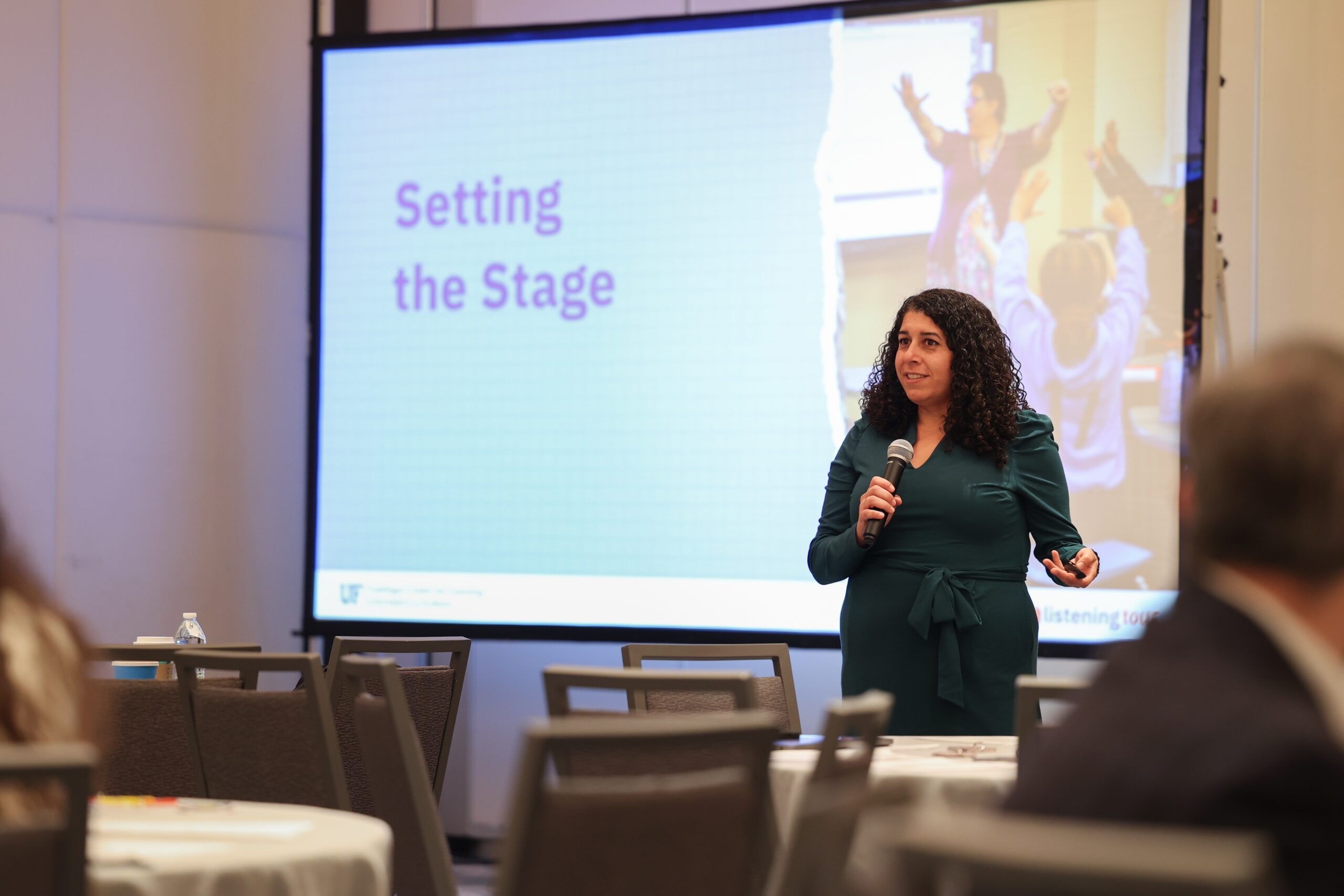
Developing a Math Infrastructure: Over the past decade, Florida has developed a robust series of supports for literacy education with components that could be duplicated for mathematics. There is an opportunity to:
- Establish a state mathematics office
- Create State Regional Mathematics Directors
- Fund district and school-based mathematics coaches
“It’s inspiring to see so many people coming together with the same goal: to ensure our students have the best possible experience with math,” said Zandra de Araujo, Ph.D., director of mathematics & research scientist for the UF Lastinger Center. “We want to create an education system where teachers have the support they need and students are engaged in meaningful mathematics.”
Moving Forward Together
The summit ended on a hopeful note, with participants expressing a shared commitment to improve math education in Florida.
“It was so encouraging to be among others who have the same passion and urgency for mathematics learning and teaching as I do,” said Gail Stewart, Ph.D., a Hillsborough County high school mathematics supervisor and Math Summit panelist. “I left feeling good knowing that we were able to learn more about the policies in place and current topics around which we are advocating for change.”
As the Lastinger Center continues its education enhancement efforts, the goal remains clear: to create a future where every student has the opportunity to succeed in mathematics, and every teacher has the tools and support they need to guide them along the way.
Portions of this story were created or edited using generative AI.
